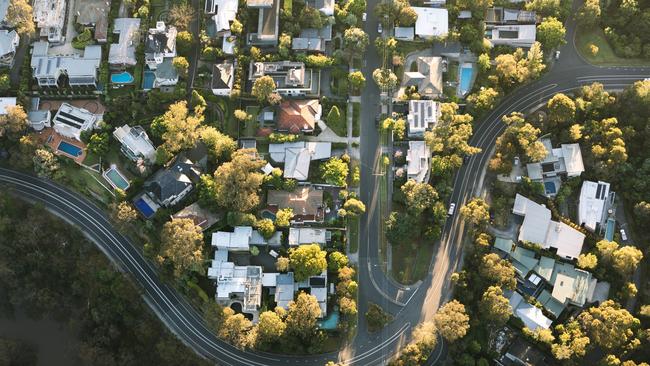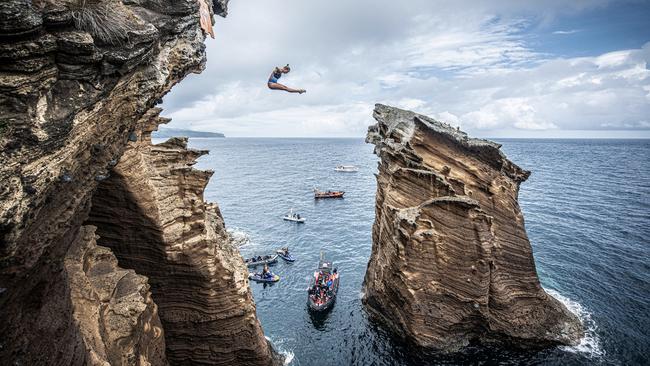Why you shouldn’t worry about a property price cliff fall
Fears of a huge house price fall haven’t yet eventuated in Australia, and while more pain may be on the way there are safety nets that can be used to stop a catastrophe.

Cliff diving is one of those pastimes that can easily prompt participants to soil their pants.
Hurling oneself off a cliff into water far below is terrifying, and has some parallels with the financial fears many Australians face right now.
Cliffs and diving are two words that have been popping up frequently this year, often around real estate.
We’ve been told that Australia’s economy is heading for a financial cliff when government subsidies get cut back from September. Home loan repayment holidays were also set to stop in September but banks have extended them to March for customers still suffering a cash crunch.
We’ve also been told that property prices could dive by 30 per cent, although these were among worst-case scenarios among forecasters who also said a 10 per cent fall was more likely.

The recent second wave of coronavirus that’s crashed mainly on Victoria has given more ammunition to those with a negative view, but it’s pointless to panic too much about property prices right now.
The latest CoreLogic data shows four capital city’s home values were higher or steady between late March and late July – Canberra up 1.3 per cent, Hobart up 0.8 per cent, Adelaide up 0.7 per cent and Darwin flat.
In that same period Brisbane values dropped 0.6 per cent, Sydney fell 1.7 per cent, Perth decreased 2 per cent and virus-plagued Melbourne plunged 3.5 per cent.
We could still see big price falls in the coming months, particularly if the COVID situation worsens nationally, but the scary 30 per cent dives forecast by some appear far-fetched.
The Federal Government is doing everything it can to prevent a financial cliff, throwing hundreds of billions of bucks at the economy through wage subsidies, business assistance and a pile of other handouts.
Its recent extension of JobKeeper and JobSeeker beyond September – albeit at reduced levels – shows it is trying to gradually wean the population off emergency payments rather than use one big swing of a financial axe.
And while Aussies will have a huge national debt to pay off for generations, we’re doing much better than most countries debt-wise, and interest rates as low as 0.25 per cent for government borrowing mean those repayments are affordable. If COVID gets worse, you can expect it to shower more money on us – whatever it takes.
Even if we do suffer a sharp property price fall, cliffs are only dangerous if you jump or fall off them.
So be brave, stick to your long-term strategy and wait for home values to eventually recover.
I once jumped off a cliff into Africa’s Zambezi River and survived. My wife did the jump too, but she belly-flopped, broke a couple of ribs and was in pain for a fortnight (don’t tell her I shared this).
Short-term property pain for all of us may be on the horizon, but it will heal in time as Australia remains one of the best countries in the world to live and invest in.
Originally published as Why you shouldn’t worry about a property price cliff fall
